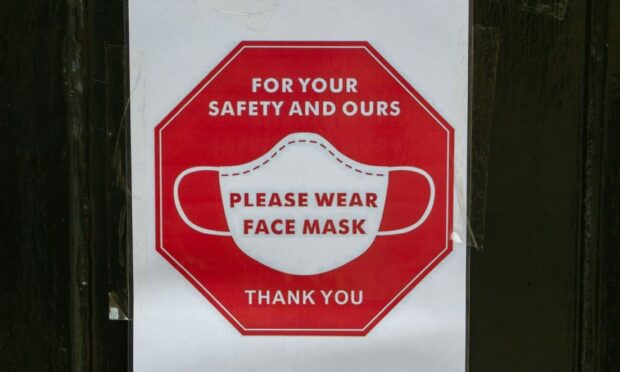Optimism amongst businesses across the Highlands & Islands sank like a stone as the spread of Omicron dealt a blow to hopes of better times ahead for trading, a survey has found.
The survey conducted by the Federation of Small Businesses (FSB) was the fifth in a series and had been picking up some buoyant sentiment in the early days of the questionnaire which took place over a 12 day period to 14 December.
‘Considerable’ pain felt
However, as the danger of variant of the Covid virus became apparent, the tone of the survey responses changed as it began to inflict “considerable pain and concern to numerous customer-facing businesses and their suppliers”.
And while the survey had found businesses were the “most positive” they had been all year, it found companies were still mired in difficulties around staff shortages as well as high utility and other cost increases – two of the greatest threats to business viability.
FSB said these factors in particular are “squeezing margins and stimulating enforced price rises”, adding: “whether or not local and visitor markets can take these increases remains to be seen”.
FSB Highlands & Islands development manager, David Richardson, said: “Our latest survey closed on the 14th of December and, perhaps understandably, it found that businesses are the most positive they’ve been all year about how trading has gone in 2021, with around three quarters saying that they have done OK or better. Conversely, 8% were really struggling/barely staying afloat.
“The Omicron variant started to flex its muscles during the survey period, and the rapidly deteriorating situation as the virus spreads, together with reimposed Covid measures and calls for the public to exercise extreme caution, are taking their toll on trading.
Major fear of virus variant impact
As early as 6 December, data released by the Scottish Government had revealed the highest number of Omicron cases recorded in the Highlands since start of outbreak.
The outbreak was linked to a music event in Nairn.
Over half of respondents to the FSB survey said that the potential for future lockdowns or tightening of restrictions was a “major fear” with almost a third (31%) now “pessimistic about their futures”.
“One wonders what impact the news since the survey closed would have had on these percentages,” mused Mr Richardson.
The FSB’s report covered all sectors of of business in Highlands, Islands, Moray, Argyll and Arran.
It found that 47% of employers didn’t have enough staff to meet their needs, and, given relatively small sample sizes, that the situation was appreciably worse in sparsely populated areas.
Remote areas struggling for workers
The survey found of all businesses reporting being short staffed, there were 58% on the West coast and 51% Islands (Shetland, Orkney, Western Isles), as against 24% for the East and central Highlands (Caithness to Drumochter, including Moray).
And while just over a third (36%) of short-staffed Highland businesses had struggled on as best they could, the rest had to cut services, opening hours or both.
A third of short staffed businesses struggled on as best they could, the rest had to cut services, opening hours or both.”
Increasing costs have also taken their toll on 85% of Highlands & Islands businesses, with four in ten (40%) saying that their profit margins have shrunk but they are struggling on, a quarter (27%) that they are reducing their ability to invest in or expand their businesses, and almost two in five (18%) that rising costs are impacting on their businesses’ survival chances.
As a result, almost a half (47%) of Highlands & Islands businesses have increased prices this year, and a quarter (24%) plan to do so in 2022. To date, just over two in 10 (22%) have increased prices by less than 5%, but seven in ten (68%) have increased them by between 5% and 20%.
Staff shortage and costs rises linked
Mr Richardson added: “Aside from Covid, the two most potent problems facing businesses from the Mull of Kintyre and Arran in the south to Moray in the east and Unst in the north are arguably the shortage of staff and rising costs, and the two are clearly linked.”
The businesses said a lack of suitable accommodation and a dearth of overseas workers as well as the provision of transport to work were all identified as significant problems for employers.
Higher pay not enough to keep staff
More than half of employers had increased wages to attract staff but this wasn’t enough – 35% said that their inability to pay sufficiently high wages to attract staff was an issue.
Mr Richardson added: “With over eight in ten businesses being hampered by rising costs and squeezed margins, 45% of them seriously, it looks like paying higher wages to attract staff from elsewhere in the country is going to become increasingly difficult unless businesses raise prices to pay for it all.
“Whether the market – both locals and visitors – can take price increases remains to be seen.
“Worryingly, some businesses say that they are reacting to these trials and tribulations by reducing hours and services (57%) or downsizing (16%).
“More positively, 14% are automating so that they can reduce their dependency on staff.”

